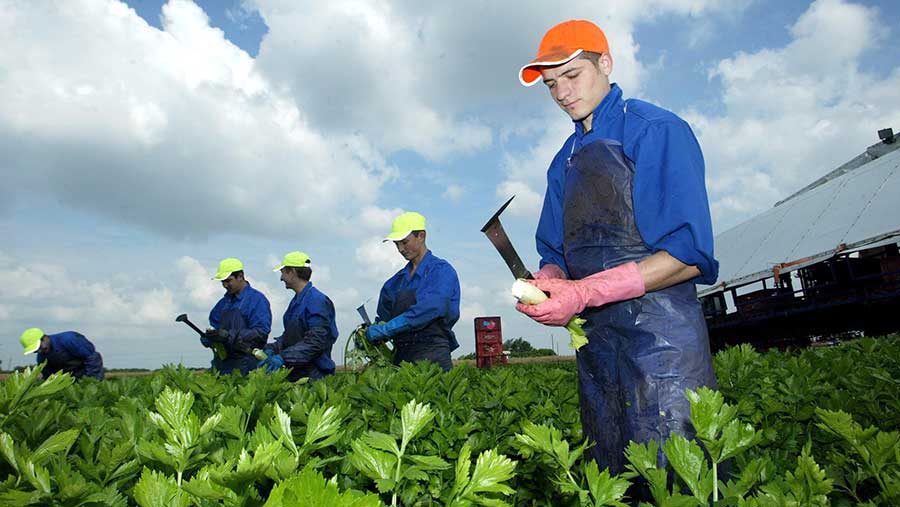Farming industry faces looming labour crisis, warn MPs
 © Rex/Shutterstock
© Rex/Shutterstock The labour shortage in UK agriculture and horticulture is in danger of becoming a crisis unless urgent measures are taken to fill the gaps, MPs have warned.
The Environment, Food and Rural Affairs (Efra) committee says it does not share the assertion of the UK government that the sector does not have a labour supply problem.
In a report published on Thursday (27 April), Feeding the nation: labour constraints, MPs say government statistics are inadequate for measuring agriculture’s labour needs, particularly where seasonal migrant workers are concerned.
See also: NFU underlines need to maintain labour supply
Neil Parish, MP for Tiverton and Honiton, and Efra committee chair, said the government must review the supply of and demand for seasonal labour by the end of 2017 to give the sector confidence before Brexit.
According to the report, there are around 75,000 temporary migrant workers employed in UK agriculture. The NFU says the sector will need to meet the demand for 95,000 seasonal workers by 2021.
But the report warns that the sector’s temporary shortfall has been exacerbated by recent events, including increased living standard in eastern Europe, a fall in the value of sterling, uncertainty created by Brexit and a feeling among foreign workers of “not being welcome”.
During the committee’s inquiry, farm leaders called for the reintroduction of a Seasonal Agricultural Workers’ Scheme (Saws), which provided up to 21,250 workers from Romania and Bulgaria until it was abandoned in 2013.
More UK workers needed
Farm minister George Eustice refused to state whether a new Saws scheme would be introduced after Brexit, but he promised to avoid any “cliff edges” in labour supply. The Home Office has indicated that it would take five to six months to introduce a new scheme.
In the long term, the government wants agriculture to become less reliant on migrant labour and use more UK workers. This will involve trebling the number of farming apprentices, changing the perception of work in agriculture and reforms to the benefit system to encourage more people back into work.
Responding to the report, the Country, Land and Business Association (CLA) accused the government of “not acting fast enough to deal with this immediate issue”.
CLA deputy president Tim Breitmeyer said: “Every week that goes by without a commitment to introduce a suitable scheme creates risk for businesses across the rural economy. This should be the first priority of ministers when they get back to their desks in June.”
